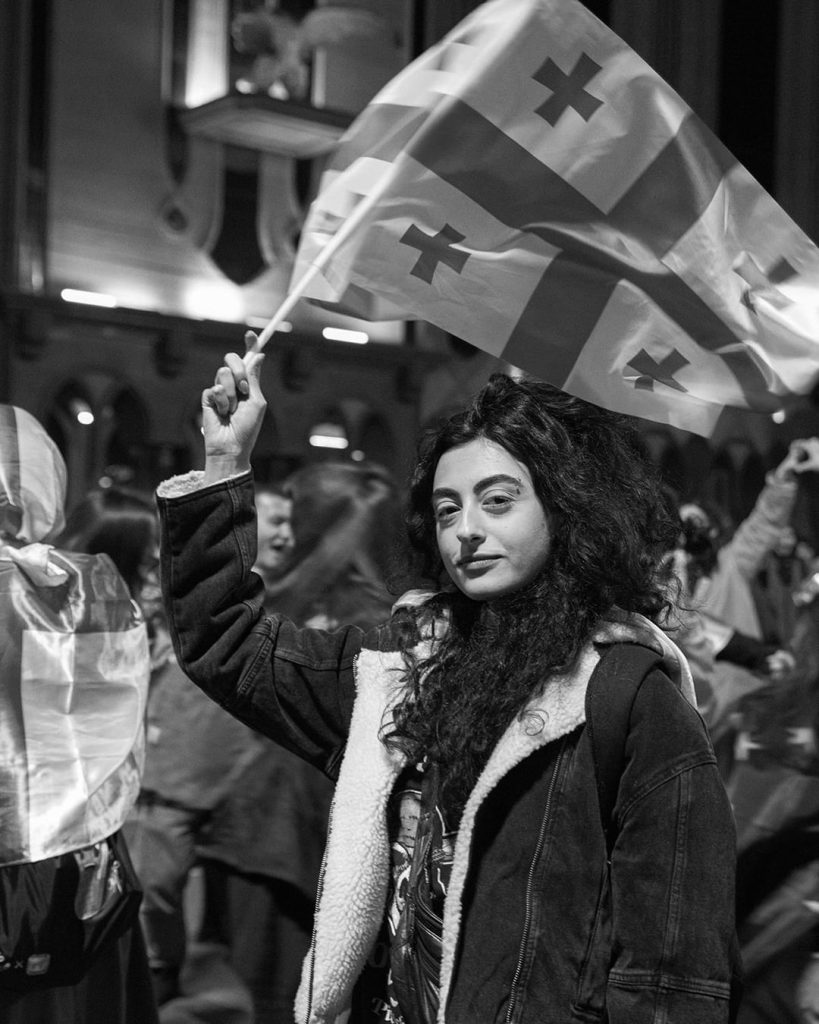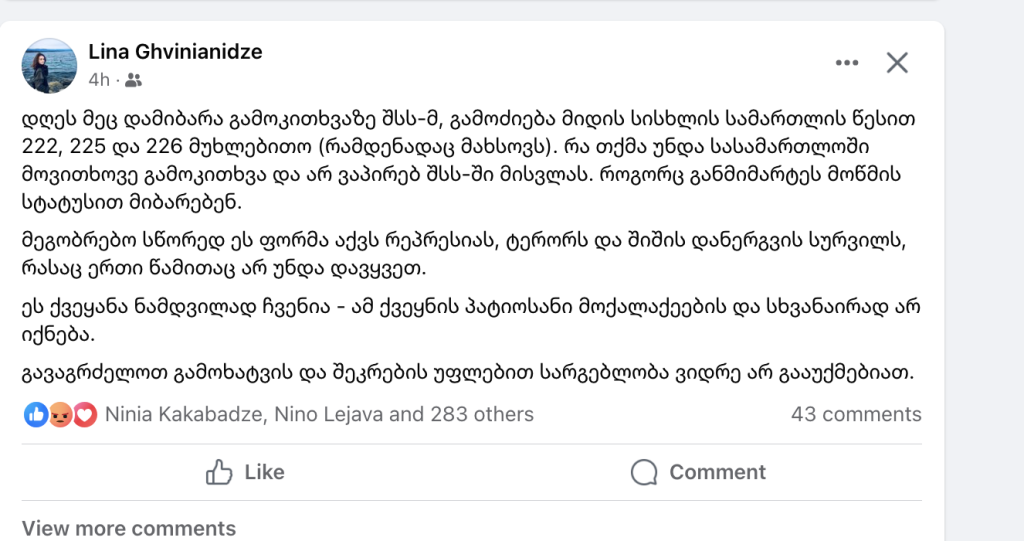"This is repression" – Protesters against Georgia's "foreign agents" law summoned by police for questioning
In Georgia, activists are summoned for interrogation
The leader of the Georgian political party “Girchi – More Freedom” Zurab Japaridze, producer of the independent TV company “Formula” Khatuna Saginadze, activist Lina Gvinianidze and dozens of other people who actively participated in protests in Georgia against the “foreign agents” law were summoned to the Interior Ministry for questioning on May 18.
Some were told they had violated an article of the criminal code on assemblies and demonstrations. But most say they were not told what exactly they were accused of or what was the reason for the summons for questioning.
Even the summons handed to one of the rally participants did not specify under which article of the criminal or administrative code he was charged.
The fact that people are summoned for questioning by the police, but have no idea why, suggests that the main purpose of these actions is to intimidate people, many political observers consider.
Zurab Japaridze says that he received a call from the criminal department of the police. He stated that any meetings with the police he would hold only at a court hearing and in the presence of a lawyer.
Japaridze urges all citizens who receive such requests or summonses to never come to the police without a lawyer.
“The Interior Ministry is summoning people en masse for interrogation. This is classic state terror carried out by people in uniform. They kidnap protesters and physically abuse them. There are ‘sondergroups’ that attack activists at night, calling them with threats. This is state terror, like in Russia. They are trying to intimidate people so that they do not come out to protests anymore,” Zurab Japaridze told the Georgian Radio Liberty.
Natalia Kipshidze, a young activist who participated in the protests, was summoned for questioning. She wrote a post about it on her Facebook page.

“The court hearing is scheduled for May 20, a protocol on administrative offense has been drawn up on me under 174 paragraph four of the article on violation of the norms of meetings and demonstrations.
I am turning 23 this year, and in my entire life, in no imaginable scenario could I find myself on trial.
In no scenario could I have imagined that someone would be following me, including in a car.
For over a month now, we have been at the protests, we have been defending our homeland. We are fighting to create an environment from which we will not want to run away,” Natalia Kipshidze wrote.
The Georgian Facebook segment is full of posts about summonses for interrogations at the Interior Ministry.
Such a request was received, among others, by Khatuna Saginadze, a news producer of the independent TV channel Formula. She writes on her Facebook page that she was contacted by officers of the criminal police of the Interior Ministry and told that they would give her details when she came to the police station.

Lina Gvinianidze, one of the founders of the Center for Social Justice, civil activist and lawyer, wrote about the summons for interrogation. She was cited under the specific articles under investigation: 222, 225 and 226 of the Criminal Code.

Lina Gvinianidze states that she will come to the Ministry of Internal Affairs and participate in the interrogation only in the presence of a judge.
“This is a form of repression, terror, a desire to instill fear in us. We must not let ourselves be frightened for even a second. This country belongs to us, decent citizens, and it cannot be otherwise. Let’s continue to enjoy the right to freedom of expression and assembly until they cancel it,” Gvinianidze wrote on her Facebook page.
Radio Liberty writes that several other people who were summoned for interrogation said that they were cited under the same articles of the criminal code as Lina Gvinianidze.
- Article 222: seizure or blocking of a television and radio broadcasting or communications facility or a facility of strategic or special importance. Shall be punished by imprisonment for up to two years, with aggravating circumstances – from two to four years of imprisonment.
- Article 225: organizing, directing or participating in group violence. Shall be punished by imprisonment from six to nine years; for participation in it – from four to six years’ imprisonment.
- Article 226: organization of or active participation in a group action that violates public order. Is punished by imprisonment for the term up to three years.
Another participant in the protests against the “foreign agents” bill, Lasha Dyarov, received a summons for questioning. He shared the summons, dated May 17, which stated that he was called in for questioning by a senior investigator from the main department for combating organized crime within the criminal police.


















